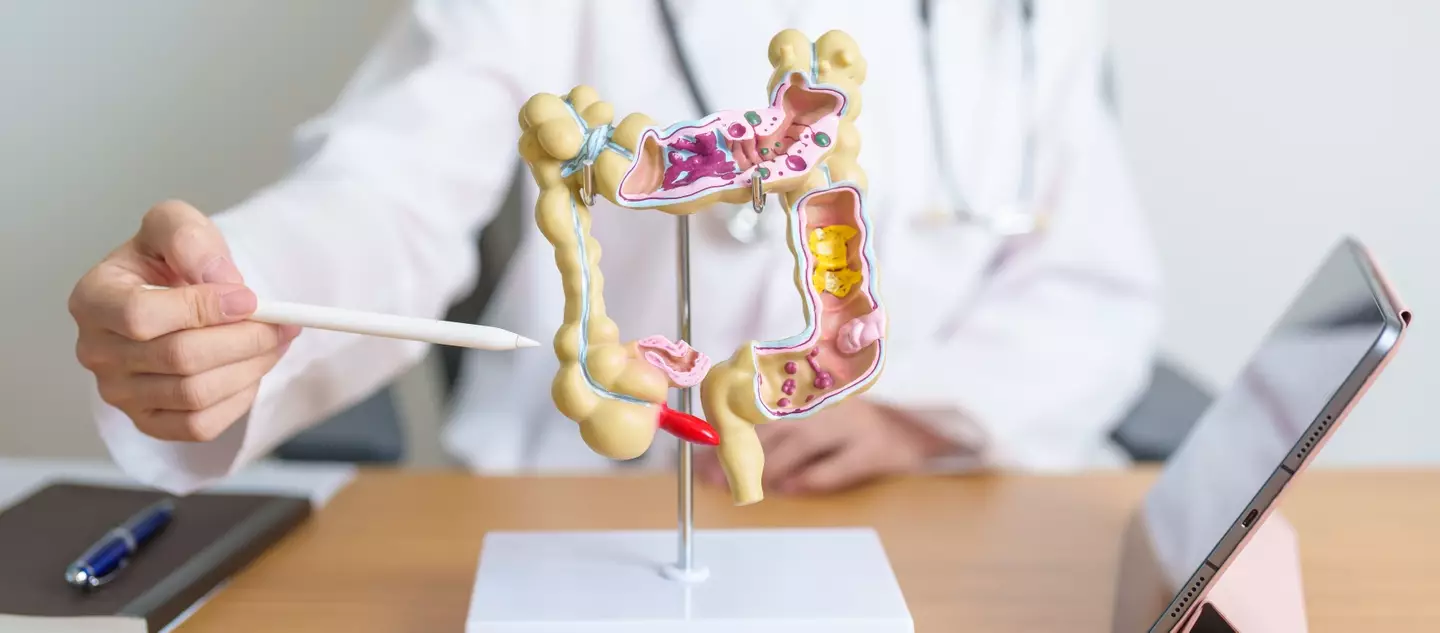
Colorectal cancer has become increasingly common in the under-50s, prompting alarm among medical professionals.
Around 44,100 new bowel cancer cases were diagnosed every year in the UK between 2017 and 2019, according to Cancer Research UK, and reports last year said those figures were expected to rise in step with a higher mortality rate in younger people.
According to the Guardian in 2024: "Death rates among those aged 25 to 49 are predicted to increase by 39% among women and 26% among men in 2024, compared with the average between 2015 and 2019, the last five-year period for which data was studied. The findings were published in the journal Annals of Oncology.”

Advert
Cancer Research UK also says that as much as 53% of cases are preventable.
According to experts, there’s one habit in particular where we should lay the blame for this increase in bowel cancer rates.
Tim Spector, an epidemiologist, and scientific co-founder of health science company ZOE, told Newsweek that, despite interest in healthy diets, confusion online has muddied the waters of what is and isn’t healthy.
He said: "It seems that younger generations want to eat well. However, because 'wellness' has become fashionable, there's a great deal of misinformation on social media. This can make it difficult for people of any age to know how to eat healthily.”
Dr Anne K. Mongiu, a colon and rectal surgeon, said that amongst concerns around ultra-processed foods and other cancer-linked ingredients, a key issue in the West is that we aren’t eating enough fibre. Gut-friendly foods like kimchi, kombucha, and other pickled foods are also helpful in preventing colon and bowel cancers.
"We know that high fibre diets can help reduce risk for colorectal cancer but unfortunately the American diet is typically low in fibre," she said, and the same can be said of typical British diets.
"This kind of diet tends to promote obesity and issues with metabolism,” she continued.
“There are multiple things that change when a person is obese and/or has metabolic syndrome. These conditions can change the environment within the body and lead to things like chronic inflammation, development and growth of cancers by affecting certain cells and increasing levels of hormones like leptin and adiponectin."

She added: "The high-fat content of this diet can activate certain pathways in the body that stimulate basic cell types (stem cells) that line the large intestine and trigger them to turn cancerous."
Spector explained that vegetables, nuts, healthy fats, seeds, whole grains, and oily fish are also vitally helpful for keeping our digestive system in good health — although none of that should be overly surprising as doctors and dieticians have been making those recommendations for a very long time.
"It's not enough to simply eat 'healthy' - you need to eat in a way that supports a healthy, balanced gut microbiome,” he added. “This is where fermented foods really shine.”
Fermented foods are great for boosting the number of healthy microbes in your gut, improving digestion and potentially having a positive effect on your psychological wellbeing too.
Dr Michelle Hughes, a gastroenterologist, added that several human-made chemicals have been linked with hormonal disruption in our bodies. These supposed endocrine-disrupting chemicals (EDCs) could also be playing a part in rising cancer rates.
“I have seen a rise in early-onset colorectal cancer with patients presenting as early as their mid-20s, often with advanced disease,” she said.
She continued: “EDCs are small airborne particles, and chemical pollutants are thought to be a significant contributor,” she said. “These pollutants can disturb the healthy balance of bacteria in our intestines, causing inflammation and stress that can lead to cancer. Another factor is what's known as the 'birth cohort effect'.”
In short, get plenty of fibre, eat whole foods where possible, eat your greens, get some oily fish down you, and avoid eating too many processed snacks or fast food.
Doing all of this may not prevent everyone from getting cancers through the digestive tract, but your odds of dodging these awful diseases should nevertheless be improved.
Topics: Health
